Boss In The Wild
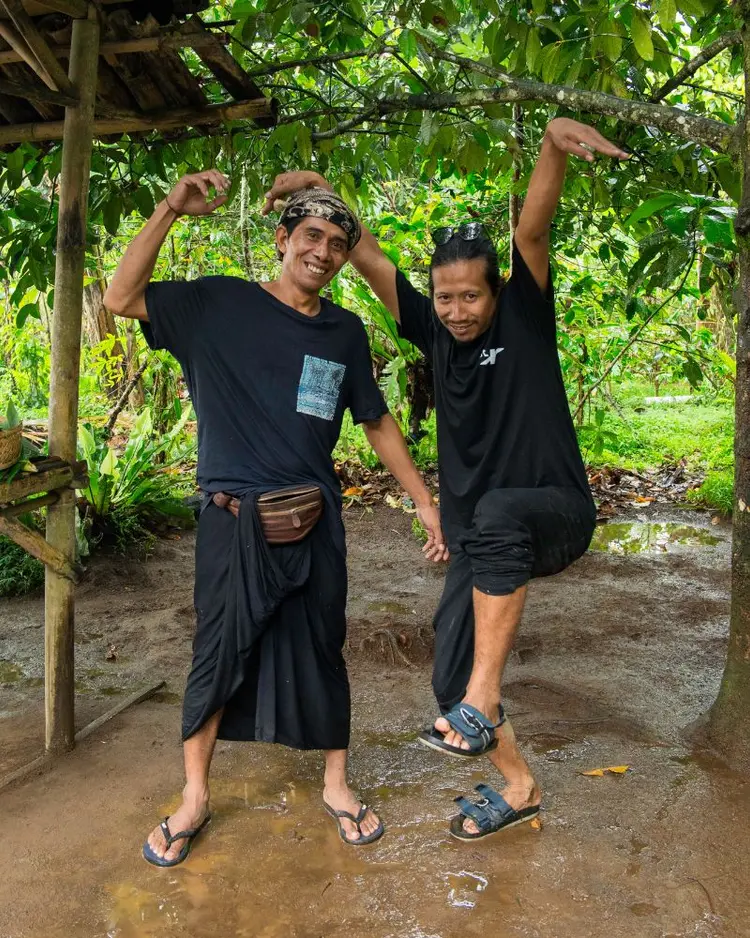
Our cheerful Sous Chef/Head Forager tells lessons you don’t learn in culinary school with a level of passion that can put the most energetic primary school kids to shame.
For over 12 years, he’s been the heart of the Locavore kitchen and the soul of our foraging journey; mapping the land, building bridges with farmers and turning forest walks into menus. With a happy heart and muddy sandals, the ever cheerful ‘Boss’–as everyone calls him–is our go-to man when it comes to ingredients and all-thing related to the Balinese land. He's also the most humble guy, so we will have to hide copies of this magazine from him as he'll be so bashful to have been featured here under the spotlight.

How did you first get assigned to be in charge of foraging?
From the beginning, when I started working with Eelke and Ray, we were already foraging local ingredients. I’ve always loved being out in nature—fishing, hunting, exploring. So it just came naturally. Then it became more intentional. Many of our chef friends and Locavore guests were really into the idea of foraging, so we started inviting them along.
Eelke and Ray trusted me to lead the way. They used to come along too, but as things got busier at the restaurant, I’d head out on my own. They've always loved getting ingredients directly from the wild, that connection to the land has always been there.
How did you first meet Pak Agung [the farmer of the land we forage]?
Pak Agung’s one of those people who just knows his land. He’s a farmer, a forager and someone we’ve worked closely with for years. Across different villages, we’ve built relationships with people like him who help us access ingredients that are truly rooted in their specific environment—whether it’s coastal, jungle, or highland. I knew him even before I joined Locavore. We used to fish, hunt and have a few drinks together. That bond was already there.
"They've always loved getting ingredients directly from the wild"
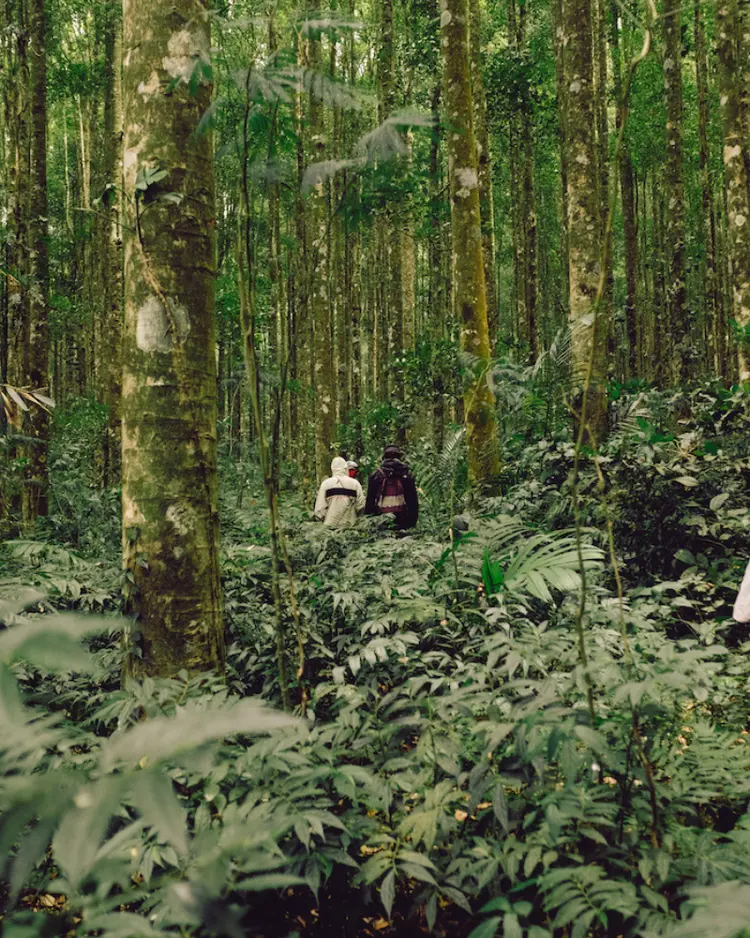
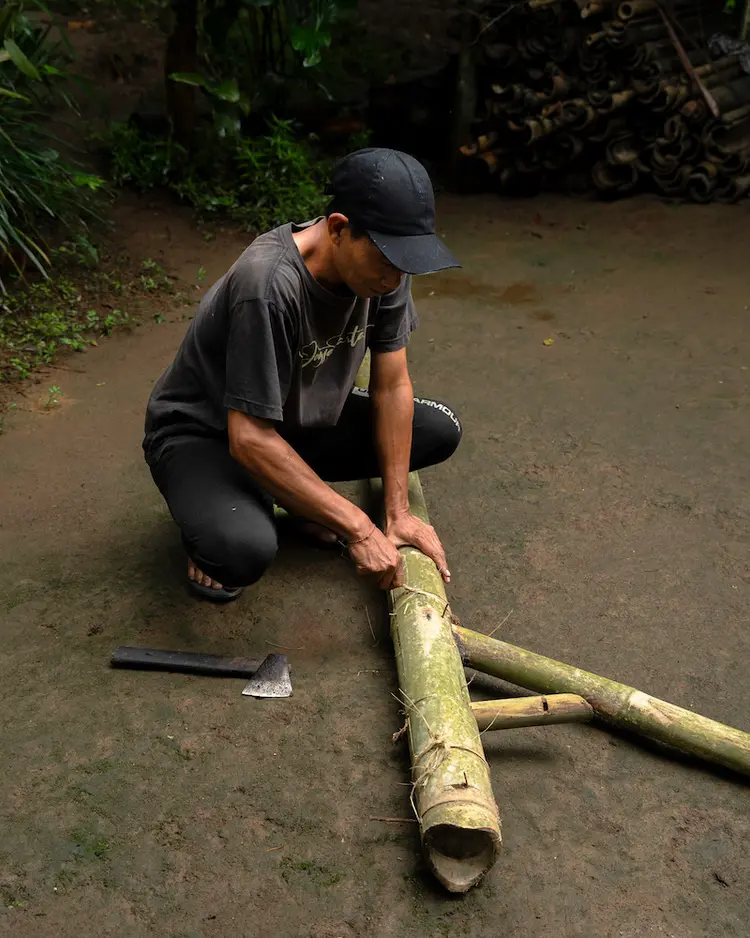
What is special about the place where we forage in Payangan?
The area around Pak Agung’s place is still beautifully untouched. The air’s clean, the people are warm and there’s this calm energy to it that you don’t find in many places anymore. Ingredient-wise, you don’t need to go far—his place alone is like a condensed version of the whole landscape. It’s curated, but still feels wild. He’s always around, always ready to jump in. What’s also special is that the village hasn’t been overrun by development. The local adat (custom) laws are strong, so the land is still protected. And that’s the kind of experience we want to share with our guests. Something honest, grounded and very close to nature.
"Back then, people thought we were nuts... We got laughed at in the beginning, but now... It's come full circle"
Is there any particularly memorable ingredient you've discovered while foraging or sourcing for Locavore?
To be honest, every ingredient sticks with me in its own way. They all have their own flavour, shape, role… and some are a lot trickier to find than others. But if I had to pick one that’s really stayed with me, it’s cemcem leaves. Traditionally, locals use it in herbal drinks, for hydration and to aid digestion. But we’ve been working with it at Locavore for over 12 years—using it in sauces, cocktails and garnishes.
Back then, people thought we were nuts. Fine dining in Bali was still chasing wagyu, foie gras, asparagus… all the imported stuff. Meanwhile, we were using ingredients from all the beautiful nature found in our backyard. The kind of stuff people grew up with. We got laughed at in the beginning, but now you see those same ingredients in many other places. That’s good. It supports local farmers and foragers. It means the system’s shifting. It’s come full circle, and that’s something I’m proud of.
Have you ever come across a particular local ingredient that stands out for our tasting menu?
We don’t believe in a single standout ingredient. Our tasting menu is about balance. Everything has to work together—no ingredient should overshadow the others. That’s what makes it special. We use ingredients that are meaningful to the land, and we introduce them to the guests in a way that reflects Bali and Indonesia. The harmony is what makes it unique.
During foraging, have you ever found something inedible by mistake
Yes. Jepen-jepen—it looks a lot like netel or stinging nettle. It burns like hell. I picked it, tasted it, and bam! My lips swelled up. Mistakes like that sharpen your instincts. Those plants grow near each other and belong to the same family. Normally we research before picking anything, but nature doesn’t always give you time to double check. Sometimes you get it wrong. That’s part of learning.
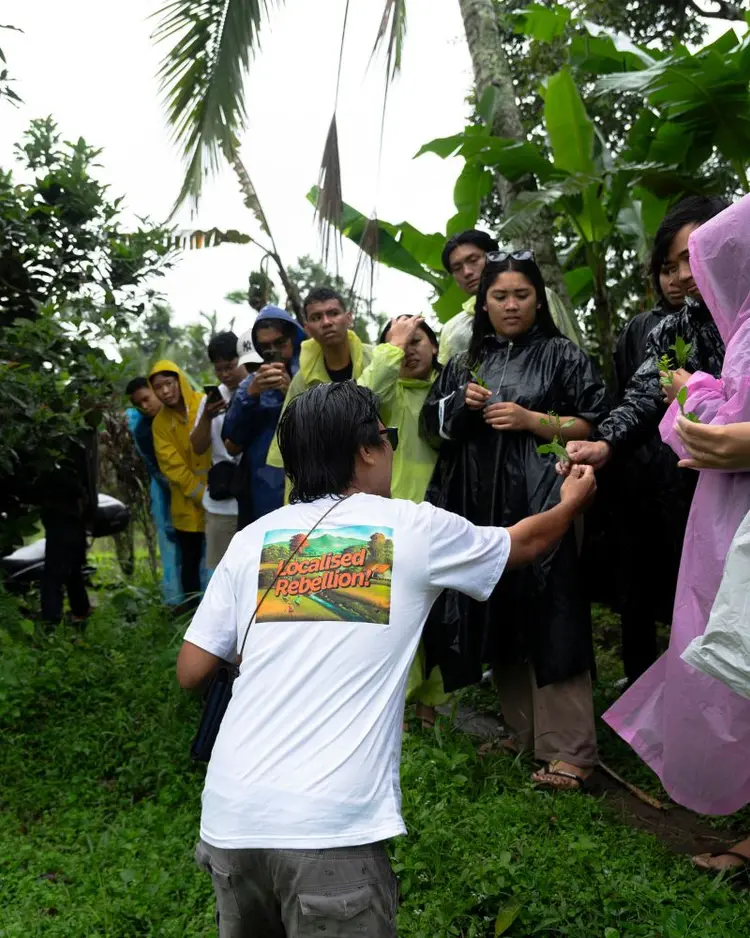
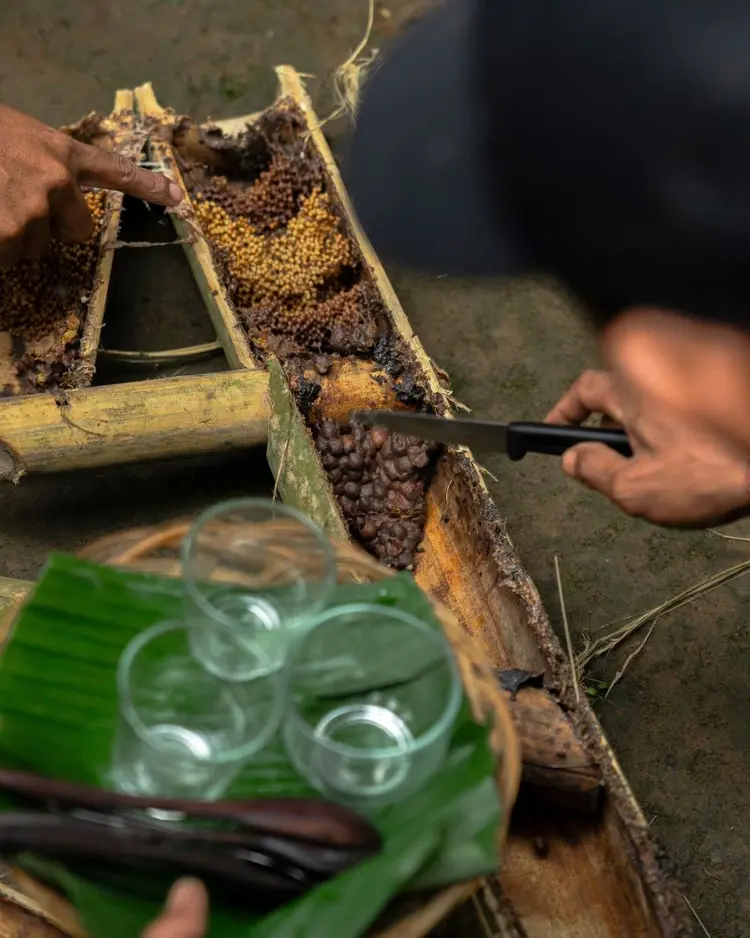
"Nature doesn’t always give you time to double check. Sometimes you get it wrong. That’s part of learning."
What lessons have you learned from farmers or foraging that you couldn’t learn anywhere else?
One thing that’s stuck with me: traditional farmers in Bali don’t make much profit, but they have time. They live slow. They grow enough food for their family, join temple ceremonies, live with purpose. They may not have a lot of money, but their land is their insurance for the future. It’s enough. Nowadays, a lot of people don’t want to farm—they’d rather chase quick money. They sell or rent their land for villas, leave the fields. But being a farmer in Bali is a choice to live slow and steady.
Our suppliers are all farmers, and we’ve helped some of them grow into that role—like Pak Agung. At first, he didn’t want to send us anything because he was worried he couldn’t meet expectations. So we guided him.
From my friends in the forest, I’ve learned that contentment doesn’t come from money.
During the pandemic, people in cities were struggling. No work, no income. Meanwhile, people in the village were fine. They still had food. In fact, they were the ones feeding us.
What’s your secret to always staying cheerful?
I try to bring good energy into the room. Everyone has light and dark in them, I just choose to lean into the light more often. There’s not much point in sitting in sadness too long. I’d rather see the people around me happy.
If you want to feel happy, you’ve got to believe that every problem has a way out. Stay positive, don’t box yourself in, don’t let yourself feel small. Stand up, face whatever it is. When it’s done, it’s done. It’s not about surrendering—it’s about acceptance.